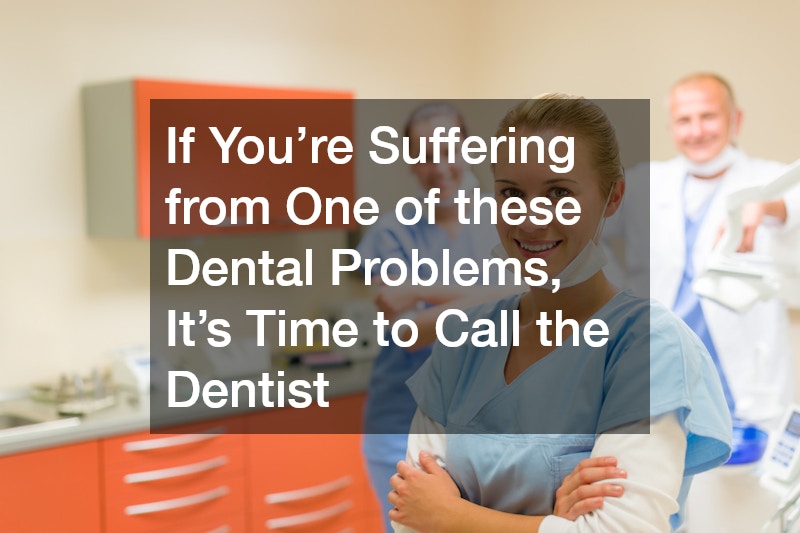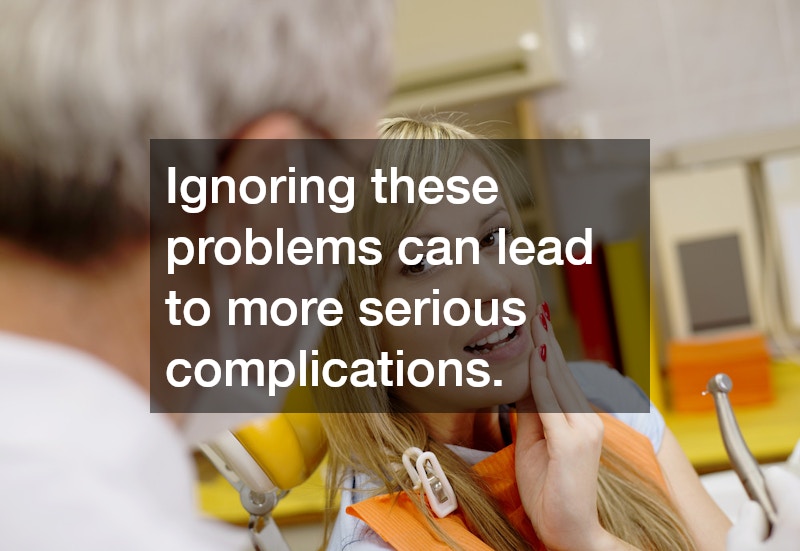

Visiting a dentist regularly is key to maintaining excellent oral health. Dentists provide preventative care, address concerns, and guide you through proper dental hygiene practices. Whether it’s routine check-ups or addressing more specific issues, they are your best resource for all things dental. If you’re experiencing discomfort or complications, professional evaluation, and dental problem solutions are essential. Dentists can resolve issues like toothaches, cavities, gum disease, or sensitivity through treatments tailored to your specific needs. Ignoring these problems can lead to more serious complications, so early intervention is crucial.

Addressing a dental concern such as misaligned teeth, discolored enamel, or jaw pain can improve both your oral health and confidence. Modern dentistry offers solutions ranging from orthodontics and whitening to advanced therapies for TMJ or bruxism. For broader wellness, many providers focus on oral health solutions that go beyond teeth, addressing overall gum health, jaw alignment, and preventative care. These services promote long-term oral health and prevent future issues.
Patients often have common dental questions like how to whiten teeth, prevent cavities, or manage tooth sensitivity. Dentists provide expert answers and guidance, ensuring you feel confident in your oral health routine and treatment decisions. Regular visits and open communication with your dentist are key to a healthy smile.
If the phrase “say cheese” makes you shudder, then you might be embarrassed by your teeth or smile. That puts you in line with almost 30% of other people across the United States. Whether they’re discolored, cracked, or less than straight, there are a number of reasons why people are not happy with their teeth. This doesn’t mean that you should ignore the problem. By not working to keep your teeth happy and healthy, you could increase your risk for a number of problems later in life.
One of the most common problems associated with a lack of oral hygiene is cavities. The World Health Organization estimates that between 60 and 90% of school children worldwide have at least one cavity, and almost 80% of U.S. adults had at least one cavity by the time they were 17 years old. That’s a lot of cavities building up across the country. And sometimes you don’t even realize that you have them.
Another common concern associated with not taking care of your teeth is that they will fall out. If this happens, you may have to have dental implants or other types of procedures to replace your teeth such as crown or bridge replacements. Almost 3 million people have these kinds of implants already, and that number grows by approximately 500,000 every year.
And those are just the most well-known problems. There are others as well, such as issues with your TMJ. TMJ stands for temporomandibular joints, and they’re the joints in your jaw that allow you to open and close your mouth. These joints are integral to a number of processes including speaking, eating, and swallowing. And causing a lot of stress on your teeth or jaw can increase your risk of developing it. There are TMJ treatment options, such as simple jaw exercises or a change of diet. However, you need to be evaluated by a professional before starting TMJ treatments. This is because another cause of this problem could be caused by the actual alignment of your teeth and jaw, which will require surgery to fix.
Each of these dental problems is completely treatable if you’re willing to work with your dentist and alter your dental care routine a little. Some of them may take multiple trips and a lot of money, but you’ll leave feeling a million times better. And that’s plenty of reason to smile again.
